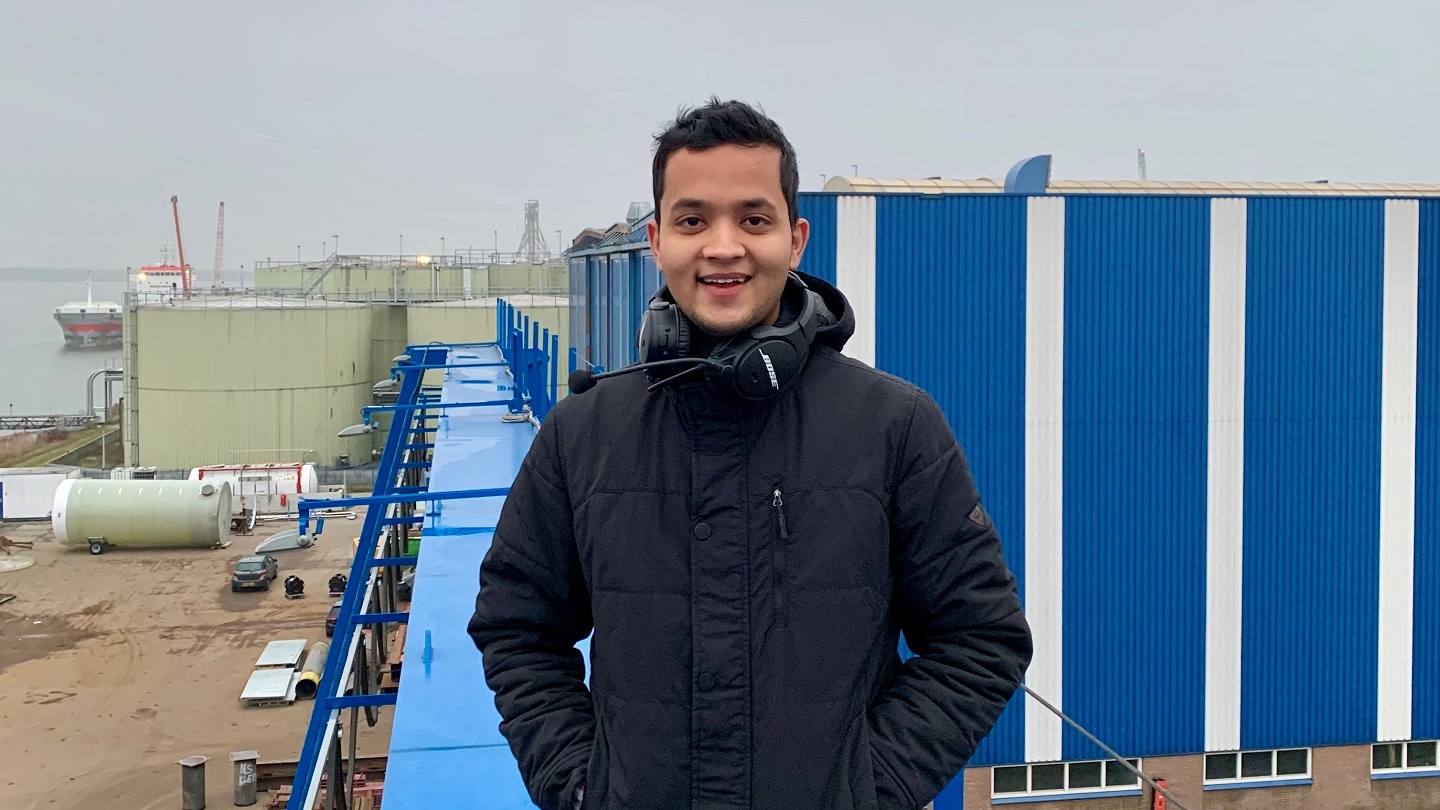Their idea may help drone delivery companies get the Covid vaccine to remote areas. What master’s student Akash Pandey and his teammates need now is funding.
Akash Pandey: “It would be really nice to know that we are helping in some way with Covid relief.” (Photo: Akash Pandey)
“As soon as I came to Delft, I joined Team Silverwing so I’ve had my fair share of exposure to practical things. In March 2020 we actually built an aircraft and that’s definitely the highlight of my time here so far. Right now, I’m working on my thesis. Hopefully I will be graduating soon, but Covid and a thesis is a deadly mix. Difficult is an understatement. I generally like working in teams and doing different things but a thesis is more of an individual thing. When you are all alone in your room it can be unnerving and very frustrating. But the professors are doing the best they can to help.
After Silverwing ended I was contacted by someone on LinkedIn. They said the European Space Agency was doing a competition and they saw that we had worked on drones before. It sounded like a good idea, so a few of us had a quick meeting and formed a team of three people: myself, James Murdza and Tom Suys. All of us are former Silverwing team members. We really wanted to do something that could possibly help in some way and decided this competition was a good way to get started.
‘Companies spend a lot of money scouting for drone locations’
It required us to make use of the Galileo system, the European GPS, to come up something like a navigation tool or green transportation. So, we discussed it and came up with an idea. Drones are going to be flying over us and a vaccine is going to be coming out, what can we do with that? Our idea was to use your phone to set up fly or no fly zones above our houses. We thought maybe we needed more experience to see how feasible it was, but there aren’t enough drones yet for it to be a major problem.
The bigger issue is actually finding places to land drones. Companies right now spend a lot of money scouting for drone locations. They have to find out the signal strength so that they can accurately position their drones to hover or drop something there. They have to find out if there are any obstructions in the area. We had been thinking in terms of urban areas, but let’s say the vaccine comes out and people on remote islands or hard to reach places would most likely be using drones to get them. They are already using drones in some places to deliver supplies.
‘We won EUR 15,000 to develop a prototype’
But if remote hospitals don’t have any landing spot or data, then the drone companies won’t be able to deliver their vaccines there. If they want to, then they have to do scouting, but it’s not feasible on a big scale. We thought, what if you could create an app that you could give to the hospitals and then someone can actually go and map out a certain area in front of the hospital, like if there are any obstructions. They send us that data, we can process it and upload it to a database. Then drone operators can access this ready-made database of the landing spots for a reduced fee.
We took this idea and entered the MyGalileoSolution competition and we won EUR 15,000 to develop a prototype. Towards the end of January, we will make a presentation for the second phase and if we win that we will get an additional EUR 40,000 to fund and further develop the idea. We called the app Touchdown.
We have now contacted some of the leading companies in drone delivery and also companies that make drone landing spots. At this point drone delivery is not very commercial. With the Covid vaccines coming out, maybe these companies are looking for something like our idea. Our main aim is to do a study and come up with a solution that hopefully can help with the Covid vaccine delivery. It would be really nice to know that we are helping in some way with Covid relief.
The idea is really a team effort and on a project like this that’s really important. We have worked together for a long time now and we couldn’t have done it on our own.”
Who are the people who work and study on campus? We meet them in Humans of TU Delft. Want to be featured in this series? Or do you know someone with a good story to tell? Send us an e-mail at humansoftudelft@gmail.com
Heather Montague / Freelance writer



Comments are closed.